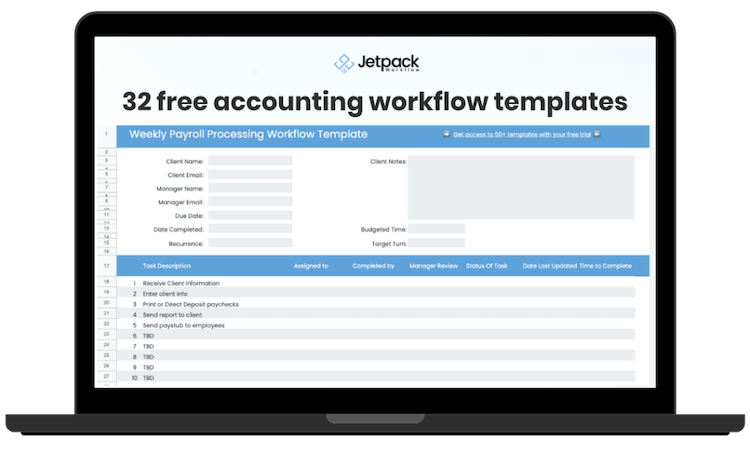Hitting $1.5M in 36 months (And Selling the Firm)

Podcast
Summary
In this episode of Growing Your Firm, host David Cristello interviews Jordan Sublette, the CEO and founder of Cloud Accountant Staffing. Jordan shares his journey of building and selling his firm, and dives into the world of outsourcing talent.
They discuss the challenges of talent crunches and how Jordan navigated through them. Tune in to gain insights on building a successful firm and leveraging outsourcing effectively.
What you’ll learn
The listener will learn about the journey of Jordan Sublette, CEO and founder of Cloud Accounting Staffing, including building his firm, outsourcing talent, structuring a sale, and navigating the world of outsourcing.
Guest Bio
Jordan Sublette: A Visionary Leader in Cloud Accounting
Jordan Sublette is a visionary leader in the field of cloud accounting, known for his innovative approach to building successful accounting firms. With a background in public accounting and a passion for entrepreneurship, Jordan has carved out a unique path in the industry, transforming traditional practices into modern, cloud-based operations.
After starting his career in a top 100 accounting firm, Jordan gained valuable experience in financial statement reviews, compilations, audits, and tax returns. This foundation gave him the confidence to venture into the world of small firm ownership. In 2019, Jordan took a bold step by acquiring a small legacy firm, leveraging an SBA loan to kickstart his entrepreneurial journey.
Under Jordan’s leadership, the firm experienced exponential growth, with revenues skyrocketing from half a million to 1.5 million in just three years. His strategic decision to pivot to a monthly recurring revenue model and capitalize on the opportunities presented by the Paycheck Protection Program during the COVID-19 pandemic proved to be game-changers for the firm’s success.
Jordan’s commitment to innovation and efficiency led him to explore the world of outsourcing talent, particularly in the Philippines. Recognizing the cost-saving benefits and the quality of talent available, Jordan established Cloud Accounting Staffing, a company specializing in connecting US-based accounting firms with skilled professionals in the Philippines.
Through Cloud Accounting Staffing, Jordan has helped numerous small and mid-sized firms optimize their operations, reduce costs, and scale their businesses effectively. His hands-on approach to recruiting and sourcing talent ensures that clients receive top-notch professionals tailored to their specific needs.
Jordan’s ethos revolves around the belief that leveraging technology and global talent is essential for the growth and sustainability of modern accounting practices. His philosophy centers on building strong client relationships, fostering a culture of continuous improvement, and staying ahead of industry trends to deliver exceptional service.
As a thought leader in the accounting industry, Jordan’s insights and expertise have been
instrumental in guiding firms towards success in an increasingly competitive landscape. His dedication to excellence, strategic vision, and commitment to innovation make him a trusted advisor and mentor for aspiring entrepreneurs and established professionals alike.
Detailed Synopsis
Jordan’s journey from acquiring a small accounting firm to transforming it into a successful business with a focus on outsourcing talent in the Philippines is a testament to strategic decision-making and entrepreneurial spirit.
Acquiring a Small Firm:
- In 2019, Jordan purchased a small accounting firm with a revenue of just under half a million dollars, marking the beginning of his ownership journey.
- Recognizing the potential for modernization and efficiency, Jordan saw an opportunity to transform the traditional nature of the acquired firm.
Transition to Outsourcing Talent:
- Understanding the advantages of outsourcing talent to the Philippines, where skilled professionals could be hired at a fraction of the cost compared to local hires, Jordan made the strategic decision to build a team with 10 staff members based in the Philippines out of a total of 15 employees.
- By leveraging outsourcing, Jordan effectively delegated various accounting tasks to his offshore team, enhancing operational efficiency.
Growth and Success:
- Through a strategic focus on outsourcing and catering to small to mid-sized firms as clients, Jordan successfully tripled the firm’s revenue within 36 months, reaching $1.5 million.
- Jordan’s emphasis on a subscription-based revenue model, operational streamlining, and the use of cloud-based tools contributed significantly to the firm’s success.
Cloud Accounting Staffing:
- Building on his success with outsourcing talent, Jordan founded Cloud Accounting Staffing, a company specializing in connecting accountants in the Philippines with firms in the US and Canada.
- The company’s commitment to providing cost-effective talent solutions to small and mid-sized firms has been pivotal in its rapid growth and achievements.
Key Takeaways:
- Jordan’s journey underscores the importance of strategic decision-making, adaptability, and the utilization of global talent to drive business growth.
- His ability to identify opportunities, implement changes, and scale the business exemplifies the power of innovation and forward-thinking in the accounting industry.
In a podcast episode, Jordan emphasized the significance of establishing strong client relationships by personally engaging in sales calls and building rapport with clients.
By involving himself in sales calls, Jordan demonstrated his commitment to understanding client needs and fostering trust, ultimately connecting with clients on a deeper level and effectively communicating the value of his services.
Furthermore, Jordan highlighted the importance of hiring the right staff and empowering them to manage client relationships effectively. By investing in talented individuals like Matt Johnston, who eventually bought out the firm, Jordan showcased the value of capable staff who can take on leadership roles and drive the firm’s growth.
Regarding sales strategies, Jordan discussed the impact of outbound marketing and cold outreach in acquiring new clients. By implementing successful strategies learned from industry experts, Jordan attracted new clients and expanded the firm’s client base.
Overall, the episode emphasizes the importance of building strong relationships with clients and staff, as well as implementing effective sales strategies to drive firm growth. By prioritizing client engagement, investing in talented staff, and utilizing proven sales tactics, firms can enhance their reputation, attract new clients, and achieve sustainable growth and success.
Outsourcing Talent to the Philippines for Small and Mid-Sized Accounting Firms
Outsourcing talent to the Philippines can offer significant cost savings and benefits for small and mid-sized accounting firms, as highlighted by Jordan Sublette, CEO and founder of Cloud Accounting Staffing.
Cost Savings:
- Outsourcing to the Philippines can result in approximately 50% cost savings compared to local hires in the US, depending on the level of expertise required.
- For instance, a full-time bookkeeping role in the Philippines may cost around $2,000 a month, while a specialized role like a tax senior with a CPA designation could cost around $4,000 a month.
- Cloud Accounting Staffing’s average placement cost of approximately $3,000 a month is notably lower than the US salary range for similar roles.
Benefits:
- Skilled Talent: The Philippines boasts a large pool of skilled accounting professionals well-versed in US accounting practices, providing firms access to quality talent at a reduced cost.
- Scalability: Outsourcing to the Philippines offers small and mid-sized firms the flexibility to scale their team based on business needs, crucial for growth or seasonal fluctuations.
- Focus on Core Activities: By outsourcing routine tasks to the Philippines, firms can allocate more resources to higher-value activities like advisory services and client relationships.
- 24/7 Operations: With a team in the Philippines, firms can operate round-the-clock, ensuring faster turnaround times for clients due to the time zone difference.
How to Get Started:
- Small and mid-sized accounting firms can engage with outsourcing companies like Cloud Accounting Staffing to begin outsourcing to the Philippines.
- Conduct a discovery call to outline requirements and the type of talent needed.
- The outsourcing company will handle recruitment and sourcing, providing a candidate pipeline for the firm to select from.
- Once onboarded, the firm is responsible for training and integration, while the outsourcing company manages HR and IT support.
In conclusion, outsourcing talent to the Philippines presents small and mid-sized accounting firms with a cost-effective solution to access skilled professionals, achieve scalability, and focus on core activities. By leveraging outsourcing benefits, firms can enhance operational efficiency and competitiveness in the market.
Timestamps
[00:03:30] Acquiring a small accounting firm.
[00:07:35] Structuring business growth during COVID.
[00:10:13] Cold outbound tactics effectiveness.
[00:14:22] Key hires discussion.
[00:17:27] Nimble, customizable recruiting services.
[00:21:20] Sourcing talent in different countries.
[00:24:47] Remote work and labor shortage.
[00:27:59] Post-sale relationship project management.
[00:31:39] Cost savings in hiring talent.














